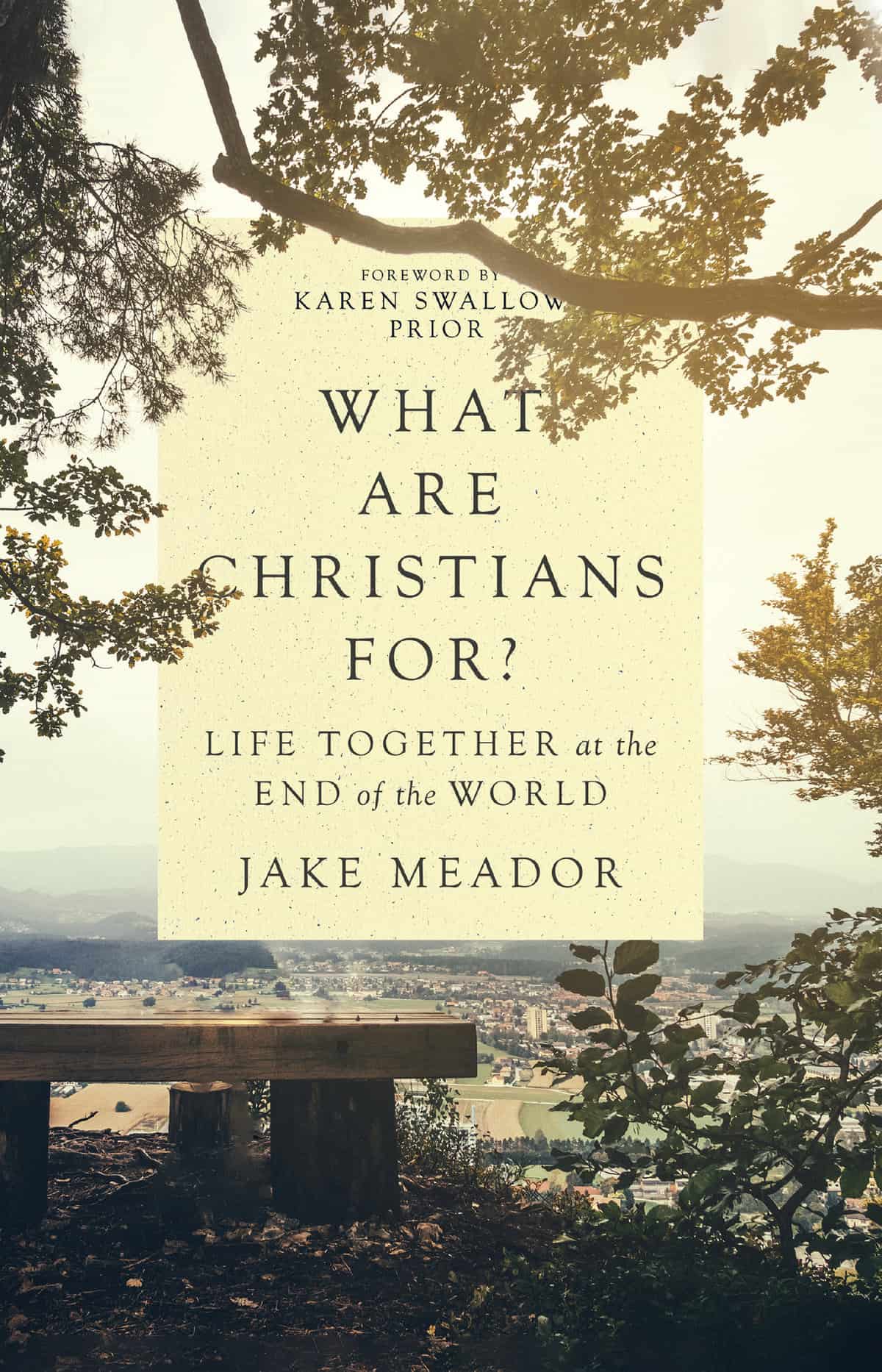
The Christian community should not simply be seeking to make our own friendships closer and more convenient, though that is a fine goal. We should also see the decision to move closer together with other Christians as a way of loving the places that we share together, of serving the good of our non-Christian neighbors in that place, and even of making the place itself healthier.
By attending to local places and sharing in the work of revitalizing them, we can learn to submit ourselves, including our desires and our ambition, to ways of living that are larger than any single person or family but constitutive of larger, broader communities.
What this will require is not simply that we seek to live in close geographic proximity to neighbor, though it will require that, but that our moving and our relationship to the places we move be grounded in something other than a simple desire to live near friends. Doing this well will mean not simply geographic proximity to our fellow Christians but a commitment to a shared project to see our neighborhood, town, or city thrive.
We cannot see our homes as standalone entities detached from anything else. Rather, we must see our houses and those of our fellow Christians who live nearby as instances of a common work to make the world more beautiful and to look more like God intends. It is, indeed, a literal remaking of “the commons,” a term which we today think of as an abstraction but which, historically, was an actual space that was shared by the members of a village or town.
In premodern England, the commons was where small farmers could put their animals out to pasture, but it could also be the site of communal gatherings or brief neighborly encounters as one went about one’s work.
There are now few shared spaces in which we can encounter our neighbors—offices are not designed with the goal of creating authentic community, and third places (such as coffee shops, bars, and restaurants) are accessible only to those with the income to frequent them and who naturally enjoy such places.
The commons has been lost over the past several hundred years to enclosure as private people have closed off places, sealing them away from neighbors and making them accountable only to the desire or greed of the owner. For Christians sharing neighborhoods with one another, our work should be to refashion the commons. This can be something as simple as tearing down the privacy fence that divides your yard from your neighbor’s so that it is easier to go back and forth between houses. Or it can be something more complex.
For those with a mind and the skill for such things, it could mean creating community garden space with sitting areas and ample room for people to encounter one another and to enjoy the natural beauty that their own land is able to sustain. More prosaically, it could mean simply hosting neighbors regularly for dinner, creating spaces in which relationships can begin to form and be strengthened.
We live now on the other side of what Paul Kingsnorth has called “the great unsettling,” and the only way back to healthy common living is the restoring of the commons, the reseeding of the gardens from which human community grows and is sustained.
We have lived in a time of uprooting, and now it is for us to begin the work of becoming rooted again. Because the Christian church is being tutored in the school of Christian discipleship, trained by divine revelation to behold reality as it is and to love the world as God has made it to be, we are uniquely positioned to begin this work and to commend it to others.
The soil for this reseeding of the world is an encounter with divine grace, which is to say an encounter with our own inadequacy. Friedrich Nietzsche looks at each of us and says, “Take, achieve, make a name for yourself that will echo in eternity.” What many of us are discovering is that this work is thankless and impossible, even for the most powerful among us. At best, we will be like Ozymandias, the great king remembered in Percy Shelley’s poem of the same name—memorialized in a toppled-over statue, lost in endless dunes of sand.
“Look on my works, ye mighty, and despair!” we say. And yet, “Nothing beside remains. Round the decay of that colossal wreck, boundless and bare, the lone and level sands stretch far away.”
Any person well acquainted with themselves knows we are not up to the task Nietzsche sets for us. And so we come back to Christianity, to the reality of our weakness and the need for grace so that we can be restored to life. Nietzsche’s world has given us the machine. Jesus offers to us the cross—and the empty tomb. And in that empty tomb we see hope for a world renewed.
The first seeds of the world to come have been sown already in the garden where that tomb is found. They were planted on Easter morning when Christ, who was mistaken for the gardener, emerged from the tomb in triumph, casting down sin and Satan and restoring the possibility of a good life on a good earth before the face of a good God. We live still before his face now, and we turn our eyes out onto that good earth “whose astonishments we can never exhaust.”
God, who is himself a lover of life, speaks to us still, saying, “breathe, live, create,” and he promises to give us all that we need to do that work.
It is time for us to begin.
Adapted from What Are Christians For? by Jake Meador. Copyright (c) 2022 by Jakob R. Meador. Reproduced here by kind permission of InterVarsity Press, Downers Grove, IL.
 Jake Meador is the editor in chief of Mere Orthodoxy, an online magazine covering the Christian faith in the public sphere, and a contributing editor with Plough. His first book was In Search of the Common Good: Christian Fidelity in a Fractured World. Jake’s work has been published in First Things, National Review, Books & Culture, Commonweal, Christianity Today, Front Porch Republic, and the University Bookman. He lives with his wife and children in his hometown of Lincoln, Nebraska.
Jake Meador is the editor in chief of Mere Orthodoxy, an online magazine covering the Christian faith in the public sphere, and a contributing editor with Plough. His first book was In Search of the Common Good: Christian Fidelity in a Fractured World. Jake’s work has been published in First Things, National Review, Books & Culture, Commonweal, Christianity Today, Front Porch Republic, and the University Bookman. He lives with his wife and children in his hometown of Lincoln, Nebraska.


